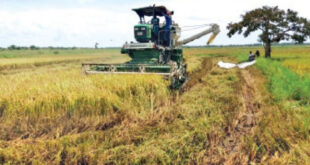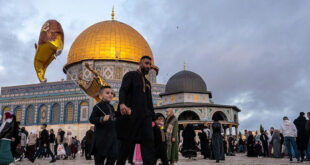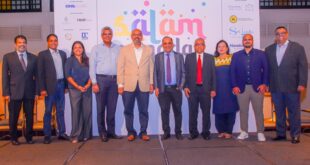Islam in many verses of the Holy Quran urges mankind to travel through the earth. Travelling to perform the Haj in Makkah is compulsory for Muslims meeting certain conditions. Haji Ismail Effendi the father of the late Mohamed Sameer (Ex Chief Trustee of the Maradana Mosque) and late Mohamed Anis & late Sithy Saleema was one traveler who was bitten by the travel bug way back in 1884. Today one gets aboard an aircraft and in utmost comfort is whisked away thousands of miles within a few hours, but in the l9th century travel had its many hazards and very few Sri Lankans would venture out to the open world, and the oceans was the only mode of travel from one land to another. Haji Ismail Effendi maintained a diary written in Arabic Tamil and my mother Mrs. Rameela Ghouse nee Sameer (eldest granddaughter of Haji Ismail) translated a section of his diary into English the details of which are below.
It will be additional interest to note that when Haji Ismail Effendi returned to Ceylon after his adventure many of the things he brought back from his travels were not much welcome by the ultra-conservative Moor community of that period. For instance it was the tradition of the Moors of that period to only adorn slippers or sandals as part of their footwear, but Haji Ismail in a change of this tradition and in a show off of his new found gains started sporting shoes which he had bought in Egypt and Turkey. This was treated with disdain by the members of his community, as shoes worn were then considered purely an attire of the Westerner and considered alien, and there were instances when he had removed the shoes at an entrance to a meal gathering, he would return to find the shoes filled with sputum poured from a spittoon as a form of defiance. He was nick named “Shoe Alim”. All this made life fairly uncomfortable for Haji Ismail in the Moor Quarters of Messenger Street, Old Moor Street, New Moor Street, where the then elite lived, so he moved out to Wellawatte in 1919.Wellawatte was then an isolated post and hardly inhabited with tracts of empty waste land.
The Egyptian Revolutionary Orabi Pasha was in exile in Ceylon at the period Haji Ismail set out on his adventure. The British had exiled him for being the leader of a revolt he had organized against British rule and Ceylon being one of the British colonies was chosen as the place for his banishment. Orabi Pasha did much for the enlightenment and advancement of the Ceylon Muslims during his period of exile and his contributions are engraved in the history of the Muslims of Ceylon. His portrait proudly adorns the walls of the Moors Islamic Cultural Home (MICR) in the Fort and there is a road in Maradana named after him. Further, there is a well equipped and well managed museum in Kandy called the “Orabi Pasha Museum” in his memory. Haji Ismail was a close associate of Orabi Pasha during that period and due to his knowledge of Arabic also served as translator into Tamil of Orabi’s discourses. Due to this close affiliation Haji Ismail when he set out on his travels took a bold step by smuggling out some letters carefully .hidden in his pillow cases written by Orabi to his fellow revolutionaries and family back in Egypt. If detected by the British authorities it would be classified as treason and Haji Ismail would have paid with his dear life, as Orabi Pasha the firebrand was the biggest thorn in the flesh for Britain in Egypt and all contacts to and from his homeland were declared taboo.
Such was the bold spirit of Haji Ismail the adventurer and his friends in those good old days at a period when houses would adorn large pictures of Queen Victoria to show affiliation and curry favour with the British Raj.
Travels of Haji Ismail Effendi bin Sahib Dorai
i n 1884
The following account of the peregrinations made by Sahib Dorai Ismail Lebbe Marikar Alim (born 23 August, 1854; died 11 January, 1896) – later SD Haji Ismail Effendi – in 1884, in the company of
(i) Yousoof Lebbe Sinne Lebbe Marikar Hajiar (later, Haji, Effendi), grandfather of M.H.M Yousoof Haji),
(ii) Muhammad Lebbe Marikar Haji Zainudeen (later Haji, Effendi, and MMC, grandfather of Mrs. M.M.I. Kariappar),
(iii) Ahmed Lebbe Marikar Samshi Lebbe Marikar (later, Haji, Effendi, father of S.L.M. Abdul Rahman),
(iv) Sinne Lebbe Marikar Mahmood (later, Haji, Effendi, and Alim, father of M.H.M. Yousoof Haji) and
(v) Rawthen Hajiar (Cook).
This account, from the beginning to end of the Journey in Istanbul, Turkey was translated into English from the original Arabic Tamil by Rameela Ghouse nee Sameer (w/o late A.W.M Ghouse), the eldest daughter of late Muhammad Sameer, son of late Haji Ismail Effendi.
When I was young I was very anxious to travel in foreign lands but was helpless. Some Ulama taught me a little knowledge of the Arabic language. I read the Holy Quran and discovered that, based on several verses contained within it, people of the old days considered embarking on journeys and seeking knowledge and experiences an essential requisite for believers as follows:
Surah Anam (6:11):
“Say, travel through the earth and see what was the end of those who rejected the truth”
Surah Yusuf (12:109):
“Do they nottravel through the Earth and see what was the end of those before them”
Surah An-Naml (27:63):
“Or (Allah) who guides you through the depths of darkness on the land and sea, and sends the winds as heralds of glad tidings”
Surah Mulk (67:15): “It is He (Allah) who has made the earth manageable for you, so traverse ye through its tracts and enjoy of the sustenance which He furnishes“.
Please Click here to read the complete Article
Post Disclaimer | Support Us
Support Us
The sailanmuslim.com web site entirely supported by individual donors and well wishers. If you regularly visit this site and wish to show your appreciation, or if you wish to see further development of sailanmuslim.com, please donate us
IMPORTANT : All content hosted on sailanmuslim.com is solely for non-commercial purposes and with the permission of original copyright holders. Any other use of the hosted content, such as for financial gain, requires express approval from the copyright owners.
 Sri lanka Muslims Web Portal Sri Lanka Muslims News Center
Sri lanka Muslims Web Portal Sri Lanka Muslims News Center
 Donate
Donate


